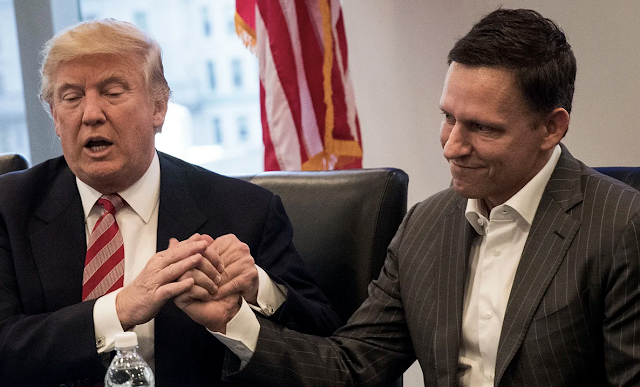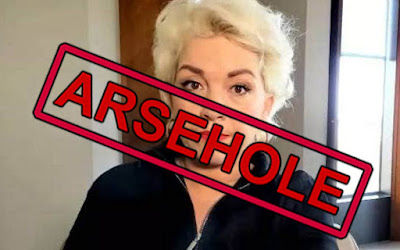The spectacle that unfolded in Parliament this week, Where Gerry Brownleee, the Speaker of the House, bumbled his way through Standing Orders, represents nothing short of a constitutional crisis wrapped in the Speaker's robes.
Chlöe Swarbrick, the Green Party co-leader, was unceremoniously booted from the House for the remainder of the week for the grievous sin of suggesting that "If we find six of 68 Government MPs with a spine, we can stand on the right side of history" regarding Israel's ongoing war crimes in Gaza.
This isn't just parliamentary theatre; it's a damning indictment of Speaker Gerry Brownlee's authoritarian tendencies and his fundamental inability to apply standing orders with even a semblance of consistency or fairness.
Yesterday, 1 News reported:
Green Party co-leader Chlöe Swarbrick has again been kicked out of Parliament after refusing to apologise for a comment she made yesterday in the House.
Yesterday, Swarbrick was kicked out of Parliament during an urgent debate on recognising Palestine as a state.
The debate was called after Foreign Minister Winston Peters said the Government was weighing up its position on the issue.
In recent times, the UK, Canada, France and Australia have announced plans to recognise Palestine as a state.
During the debate on Tuesday, Swarbrick said MPs could "grow a spine" and support her bill which would impose sanctions on Israel.
In response, Speaker of the House Gerry Brownlee said: "That is completely unacceptable to make that statement. Withdraw it and apologise." When she refused, Brownlee said she would have to leave for the rest of the week and removed her from the House.
The hypocrisy here is so brazen it would be laughable if it weren't so deeply concerning for our democratic institutions. When John Key famously roared at the entire Labour Party to "get some guts" during his tenure as Prime Minister, did we see Brownlee, then in opposition, calling for suspensions? Quite the contrary. Brownlee himself applauded most vociferously, treating Key's insulting outburst with admiration. Brownlee was similarly accepting of Brooke van Velden's use of the word "Cunt". However, when Swarbrick uses less insulting language, calling for government MPs to show some "spine," suddenly we're dealing with language that's "completely unacceptable" to parliamentary standards.
This selective enforcement isn't just inconsistent, it reveals Brownlee's fundamental bias as Speaker, a bias that has been exhibited throughout his tenure. As Speaker of the House, his role demands impartiality, yet time and again we witness him wielding the Speaker's power like a partisan cudgel, particularly against opposition MPs who dare challenge the government's moral failings.
CHLOE EJECTED:
— Mountain_Tui (@Mountain_Tui) August 12, 2025
I had a little sympathy for parliamentary protocol until I saw this. Gerry Brownlee gives standing ovation to John Key after Key's outburst criticising opposition MPs.
Brownlee also contravened Jonathan Hunt's Standing Orders by banning her for a week#nzpol pic.twitter.com/rdJinbGKh2
Rather than recognising the profound cultural and constitutional significance of their protest, Brownlee chose punishment over understanding. The parallel is striking: whether it's Māori MPs defending indigenous rights or Swarbrick calling for international law enforcement, Brownlee consistently sides with unfair authoritarian silencing over justified democratic debate.
Most concerning is Brownlee's apparent disregard for parliamentary procedure itself. Standing Orders clearly state that following an MP's suspension for one sitting day, "the matter is at an end." Yet Brownlee has attempted to extend Swarbrick's punishment across an entire week, a ruling that fundamentally contradicts established parliamentary practice.
📍Let’s not mince words: Speaker Gerry Brownlee has shown glaring hypocrisy in singling out Chlöe Swarbrick for her sharp—but frankly, deserved—rebuke of the government, and booting her out of the House for the rest of the week.
— Kelvin Morgan 🇳🇿 (@kelvin_morganNZ) August 12, 2025
Her comments came at the end of a fiery speech… pic.twitter.com/60u2fUIzUt
In 2008, Gerry Brownlee accused Michael Cullen of not having a backbone. So how can he now say in all honesty that a Green's MP essentially saying the same thing is misconduct?
Here is Brownlee using the exact same language:
Does he agree with Trevor Mallard when he stated in the same speech: “any decent leader would have had the backbone to turn round, go the other way, and not greet Tame Iti,”; if so, does his trio of hongi with Tame Iti last week indicate that he is not a decent leader and has no backbone, because he did not take the strongly worded advice of his wise colleague?
When Speakers start making things up as they go along, particularly to silence opposition voices, we're witnessing the erosion of democratic norms that took centuries to establish.
This pattern of believing rules don't apply to him isn't new territory for Brownlee. In 2014, while serving as Transport Minister, he offered to resign after deliberately bypassing airport security in Christchurch, leading two staff members through an exit door to avoid security screening because he was apparently running late for a flight. The Civil Aviation Authority investigation revealed that the dishonest Brownlee had "plenty of time" to go through security correctly and still catch the flight, as a review of screening times that day showed the process took less than two minutes per passenger.
Perhaps we shouldn't be surprised by this display of authoritarian overreach from a man whose ministerial career is marked by catastrophic failure. As Minister for Canterbury Earthquake Recovery, Brownlee presided over one of the most bungled reconstruction efforts in New Zealand's history. The Christchurch rebuild became synonymous with delay, cost overruns, and bureaucratic incompetence under his watch. Communities waited years for basic infrastructure while Brownlee's ministry shuffled papers and shifted blame.
Then there's Brownlee's budget bungling, most notably his increases to the petrol excise duty and user charges because Bill English couldn't balance the budget properly. Not to mention Brownlee's press secretary, Nick Bryant, involvement in Cameron Slater's attack campaign against a public servant which resulted in death threats. Throughout his parliamentary career, Brownlee has demonstrated a particular talent for inflammatory and often racist rhetoric and campaigning when it suits him, yet now he demands standards of discourse he never applied to himself. His history of intemperate outbursts and partisan attacks sits poorly with his current position as supposed guardian of parliamentary decorum.
Swarbrick's comments weren't frivolous parliamentary point-scoring, they addressed New Zealand's immoral position regarding Israel's documented war crimes in Gaza. International courts have established clear evidence of violations of international humanitarian law, but our government appears to be paralysed by political calculation rather than moral clarity.
#BHN Tonight at 9pm
— Pat Brittenden (@patbrittenden) August 13, 2025
- Jacinda rules out attending COVID hearing
- The hypocrisy around Chloe's ejection
- Erica Stanford bans more te reo in primary schools#nzpol #nzpolitics https://t.co/pJhtGJpqDw
Brownlee's ruling represents a dangerous precedent where Speakers can essentially manufacture extended punishments beyond established procedures. If this stands unchallenged, we're accepting that parliamentary rules can be bent to suit political convenience, a path that leads inevitably to the erosion of democratic safeguards. The real travesty isn't Swarbrick's call for moral courage; it's Brownlee's attempt to silence it through procedural authoritarianism.





















